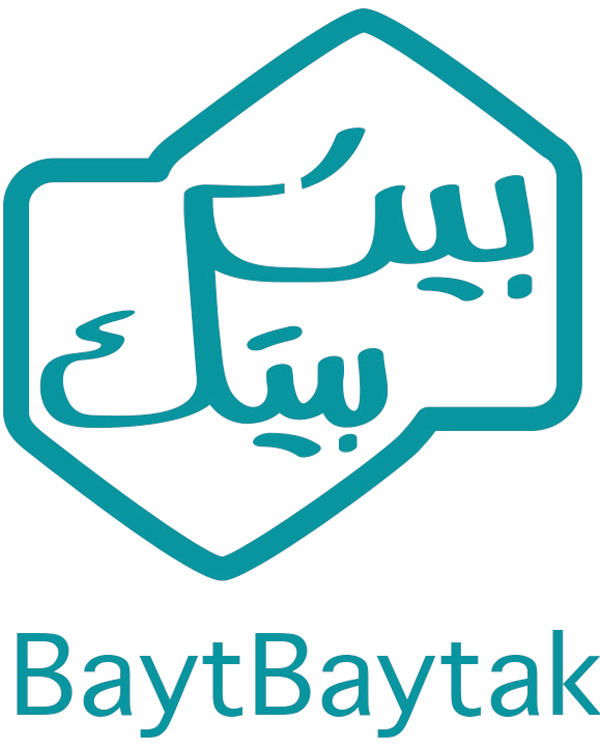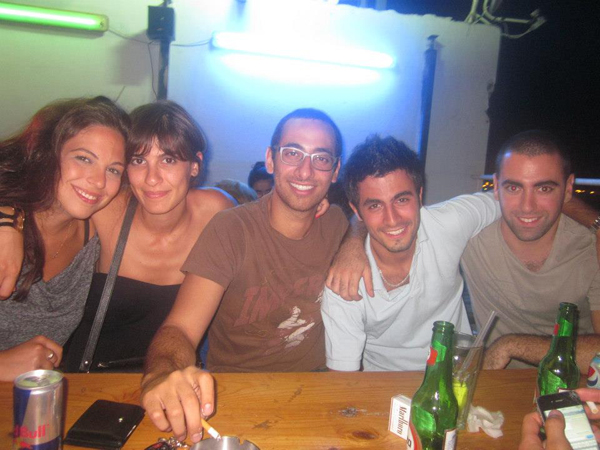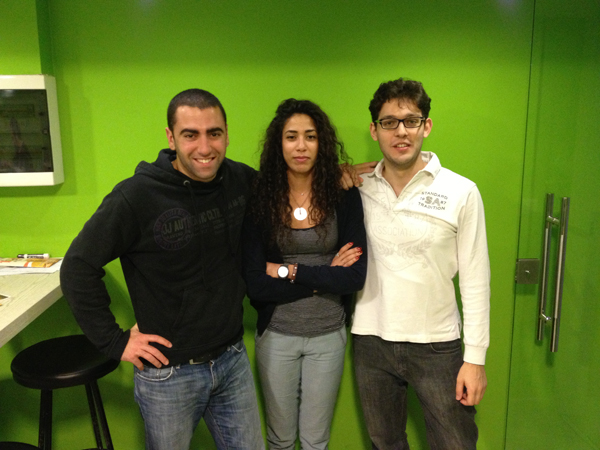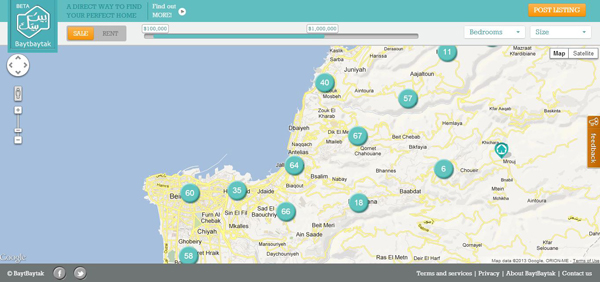FACES OF THE ECONOMY: Marwan Harmouche
Faces of Economy – Lebanon
FACES OF THE ECONOMY: Marwan Harmouche
There are 1.4 million workers in Lebanon – this is the story of one of them.
25 percent of all startups fail in their first year and among the major reasons behind failure is a lack of managerial experience, studies have shown.

FACES OF THE ECONOMY: Marwan Harmouchee
There are 1.4 million workers in Lebanon – this is the story of one of them.
By Elias Sakr
BEIRUT: 25 percent of all startups fail in their first year and among the major reasons behind failure is a lack of managerial experience, studies have shown.
Nevertheless, young Lebanese entrepreneur Marwan Harmouche decided to take up the challenge.
After two years of management experience in the advertising and film-making industry, Harmouche, 24 partnered with two other fresh graduates to cofound Baytbaytak.com, a map-based residential estate listing service.
After two years of management experience in the advertising and film-making industry, Harmouche, 24 partnered with two other fresh graduates to cofound Baytbaytak.com, a map-based residential estate listing service.
Baytbaytak, which stands in Arabic for “home your home,” is a platform that directly connects buyers and sellers.
On top of his managerial experience, Harmouche sought to further curb traditional risks associated with startups by partnering with Seeqnce, a Beirut-based startup accelerator.
Harmouche, who works relatively long hours to put his startup on track, says the idea behind Baytbaytak is to serve customers who like himself don’t have the luxury of time to search for a home.
“We started BaytBaytak to meet a need that already exists and is partially unfulfilled. For example, some of our friends had complained about wasting Sundays to look for a house rather than relax and enjoy time with their families or friends,” Harmouche says.
“Now they can save time and do it in the convenience of their own home.”
Life in Beirut
Harmouche, who despite his long working hours always makes time to spend with friends and family, says traffic jam and political bickering highlight some of Lebanon’s system inefficiencies.
Harmouche relies mainly on public transportation during the day, which he says is more efficient during traffic hours and borrows his parents’ car to go out at night.
“Sharing the car and using public transportation keeps our family commuting cost relatively low,” he says.
Harmouche stresses that he chose to launch an internet start-up to bypass the Lebanese system inefficiencies.
“Working on an internet start-up doesn’t require much to get the job done and helps me shield myself from the inefficiencies of the system.”
Despite Beirut’s ranking in 171st spot worldwide and 16th in the MENA region on the quality of life index recently released by global consultants Mercer, Harmouche says
he feels this where he belongs as opposed to his two brothers and the majority of his friends who chose to live abroad.
“Beirut is offering me things that other cities that I visited can’t offer, I love living here,” he says.
When he is off work, Harmouche finds leisure in playing sports and manages to keep his expenses relatively low despite living in one of the most expensive city of the Middle East.
“My expenses are relatively low because I don’t pay rent. I live between my parents’ place and my aunt house.”
Education and Early Experience
Harmouche studied at the Grand Lycee Franco Libanais in Achrafieh and graduated with a scientific baccalaureate before enrolling at the Academie Libanaise des Beaux Arts (ALBA) where he studied film making.
After he earned his bachelor degree, he worked in the advertising and movies production management field. He contributed to the production of commercials destined for Lebanon and the Arab world as well as movies.
Among those movies is the famous “where do we go now” by Lebanese prominent film director Nadine Labaki.
His management experience in the film making and advertising industry encouraged him to launch his own startup.
BaytBaytak
While the concept of online property search itself isn’t new, Harmouche explains that BaytBaytak differentiate itself from the competition in two key aspects.
On the one hand, listed offerings are map-based rather than textual.
“This allows the visitor to visualize the neighborhood, street and shops…that surround the apartment that he is looking at,” Harmouche says.
On the other hand, the website connects buyers and sellers directly, leaving out brokers or middlemen.
While filtering out brokers is time-consuming because Baytbaytak staff has to manually screen listings before posting them online, Harmouche explains that market research has shown that buyers feel more confident connecting directly with developers or sellers.
“Unlike rival websites, Baytbaytak’s database is constantly updated and listings are checked for accuracy and continued availability,” he adds.
“Unlike rival websites, Baytbaytak’s database is constantly updated and listings are checked for accuracy and continued availability,” he adds.
Not only is the Baytbaytak’s business model distinct from the competition but so is its revenue model.
Baybatak neither charge end-consumers commissions nor serves conventional ads on its website.
“We earn money from developers by offering them two forms of promoted placements. Professional and premium placements, Harmouche says.
Professional placements are specifically designed pages embedded within the website allowing developers to showcase their properties.
“It is like a standalone website within the Baytbaytak website,” Harmouche says.
Premium placements offer developers better exposure than their premium peers since they are limited to only 5 in total and are highlighted with pop-ups when a client searches for a property in a nearby map area.
“The design is simple, slick and easy to use. It is constantly adapted to meet the client’s needs that dictate how we present, shape and evolve our products,” Harmouche says.
Baytbaytak, which was launched two month ago, lists only residential properties for rent or sale.
“For now, we decided to target a niche market,” Harmouche says. He highlights that Baytbaytak plans to expand geographically to reach clientele in other MENA countries rather than broaden its base of offerings to include non residential real estate.
“Expanding to other MENA countries is our first priority, once we establish a successful business in Lebanon,” he says.
Harmouche’s management philosophy to run a successful business is simple: he believes in building trust bridges between team members based on transparency and good humor.
“I believe that these key components keep the team moving forward when the times get hard,” he says.
Baytbaytak is expected to start generating revenue four to six month after its launch with an initial investment of $76,500 by Seeqnce in exchange for 30 percent of the company’s shares.
During the first six months, Seeqnce offered Baytbaytak staff a workplace but above all mentorship, Harmouche says.
The website will be marketed mainly online on popular social networks such as Facebook and through international ad-serving platforms such as google ads, according to Harmouche.
Asked when he expected Baytbaytak to break even, Harmouche says that the company’s strategy is more about investing to expand business operations in the short to medium term.
EDITOR’S NOTE: Every two weeks Marcopolis will profile a different hardworking citizen. Nominations can be sent by you, friends, family or even coworkers, for inclusion in the “Face” series. Tell us your story. Send to contributing business correspondent: T.K. Maloy: tkmaloy@gmail.com